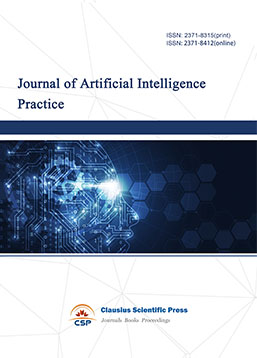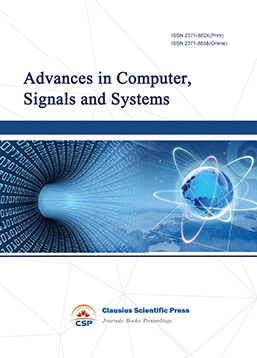A Privacy Preserving Scheme for Incentive-Based Demand Response in Smart Grid
DOI: 10.23977/jnca.2019.41002 | Downloads: 32 | Views: 3737
Author(s)
Shaomin Zhang 1, Kai Wang 1, Baoyi Wang 1
Affiliation(s)
1 School of Control and Computer Engineering, North China Electric Power University, China
Corresponding Author
Shaomin ZhangABSTRACT
The Incentive-Base Demand Response (IDR) programs in the smart grid provides the ability to shape the power demand on the demand side, which ensures better stablility than in the traditional power grid. However, the IDR programs require the customer’s fine-grained power consumption data to be collected, which poses a serious threat to customer privacy. A IDR privacy preserving scheme is proposed in this paper which utilises a descent off-line electronic coin scheme for the extraction and redemption of rewards and has less computational costs than currently know IDR privacy preserving schemes.
KEYWORDS
Data Privacy, Incentive-Based Demand Response, Smart GridCITE THIS PAPER
Shaomin, Z., Kai, W., Baoyi, W., A Privacy Preserving Scheme for Incentive-Based Demand Response in Smart Grid, Journal of Network Computing and Applications (2019) 4: 7-13. DOI: http://dx.doi.org/10.23977/jnca.2019.41002.
REFERENCES
[1] Qdr, Q. (2006) Benefits of demand response in electricity markets and recommendations for achieving them. US Dept Energy, Washington, DC, USA, Tech Rep,
[2] Hart, G.W. (1992) Nonintrusive appliance load monitoring. Proceedings of the IEEE, 80, 1870–91.
[3] Huang, T.D., Wang, W.-S. and Lian, K.-L. (2015) A new power signature for nonintrusive appliance load monitoring. IEEE Transactions on Smart Grid, 6, 1994–5.
[4] Molina-Markham, A., Shenoy, P., Fu, K., Cecchet, E. and Irwin, D. (2010) Private memoirs of a smart meter. Proceedings of the 2Nd Acm Workshop on Embedded Sensing Systems for Energy-Efficiency in Building, ACM, New York, NY, USA. pp. 61–6. https://doi.org/10.1145/1878431.1878446
[5] Efthymiou, C. and Kalogridis, G. (2010) Smart grid privacy via anonymization of smart metering data. First Ieee International Conference on Smart Grid Communications, pp. 238–43.
[6] Gong, Y., Cai, Y., Guo, Y. and Fang, Y. (2016) A privacy-preserving scheme for incentive-based demand response in the smart grid. IEEE Transactions on Smart Grid, 7, 1304–13.
[7] Koblitz, N. and Menezes, A.J. (2015) The random oracle model: A twenty-year retrospective. Designs, Codes and Cryptography, 77, 587–610.
[8] Schnorr, C.-P. (1991) Efficient signature generation by smart cards. Journal of Cryptology, 4, 161–74.
[9] Galindo, D. and Garcia, F.D. (2009) A schnorr-like lightweight identity-based signature scheme. International Conference on Cryptology in Africa, pp. 135–48.
[10] Pedersen, T.P. (1991) Non-interactive and information-theoretic secure verifiable secret sharing. Annual International Cryptology Conference, pp. 129–40.
[11] Brands, S. (1993) Untraceable off-line cash in wallet with observers. Annual International Cryptology Conference, pp. 302–18.
| Downloads: | 1745 |
|---|---|
| Visits: | 185411 |
Sponsors, Associates, and Links
-
Power Systems Computation

-
Internet of Things (IoT) and Engineering Applications

-
Computing, Performance and Communication Systems

-
Journal of Artificial Intelligence Practice

-
Advances in Computer, Signals and Systems

-
Journal of Web Systems and Applications

-
Journal of Electrotechnology, Electrical Engineering and Management

-
Journal of Wireless Sensors and Sensor Networks

-
Journal of Image Processing Theory and Applications

-
Mobile Computing and Networking

-
Vehicle Power and Propulsion

-
Frontiers in Computer Vision and Pattern Recognition

-
Knowledge Discovery and Data Mining Letters

-
Big Data Analysis and Cloud Computing

-
Electrical Insulation and Dielectrics

-
Crypto and Information Security

-
Journal of Neural Information Processing

-
Collaborative and Social Computing

-
International Journal of Network and Communication Technology

-
File and Storage Technologies

-
Frontiers in Genetic and Evolutionary Computation

-
Optical Network Design and Modeling

-
Journal of Virtual Reality and Artificial Intelligence

-
Natural Language Processing and Speech Recognition

-
Journal of High-Voltage

-
Programming Languages and Operating Systems

-
Visual Communications and Image Processing

-
Journal of Systems Analysis and Integration

-
Knowledge Representation and Automated Reasoning

-
Review of Information Display Techniques

-
Data and Knowledge Engineering

-
Journal of Database Systems

-
Journal of Cluster and Grid Computing

-
Cloud and Service-Oriented Computing

-
Journal of Networking, Architecture and Storage

-
Journal of Software Engineering and Metrics

-
Visualization Techniques

-
Journal of Parallel and Distributed Processing

-
Journal of Modeling, Analysis and Simulation

-
Journal of Privacy, Trust and Security

-
Journal of Cognitive Informatics and Cognitive Computing

-
Lecture Notes on Wireless Networks and Communications

-
International Journal of Computer and Communications Security

-
Journal of Multimedia Techniques

-
Automation and Machine Learning

-
Computational Linguistics Letters

-
Journal of Computer Architecture and Design

-
Journal of Ubiquitous and Future Networks


 Download as PDF
Download as PDF